This blog post is inspired from the book “Kiss, Bow, or Shake Hands”, one of the bestselling guides to do business in different countries. It is used as the textbook in the “Negotiation” course of my MBA program. However, I realize that the book has focused mainly on doing business and failed to give enough accurate, useful and updated information for foreigners in order to work effectively with Vietnamese. As a result, the purpose of this post is to help people from other cultures to:
- Know how Vietnamese employees think, work and behave.
- Know how to communicate effectively with Vietnamese employees.
- Know how to establish a good relationship with Vietnamese employees.
- Avoid potential misunderstandings and inappropriate behaviors.
Originally, this is written to give my co-workers in Australia and Philippine with basic cultural literacy about Vietnam in a working environment. And since we are working in the software industry, the cultural literacy also focuses a little bit on that industry. This will be useful for those who will work as expats in Vietnam or for foreign companies that are going to open their business in Vietnam, especially in the IT industry.
So here are the things you should know when working with Vietnamese:
Religion
Confucianism (which is a philosophy more than a religion) has had a great effect on Vietnamese thought and tradition. Buddhism and Christianity are the two most popular religions in Vietnam. However, the majority of the population do not follow any religion, they just worship their ancestors.
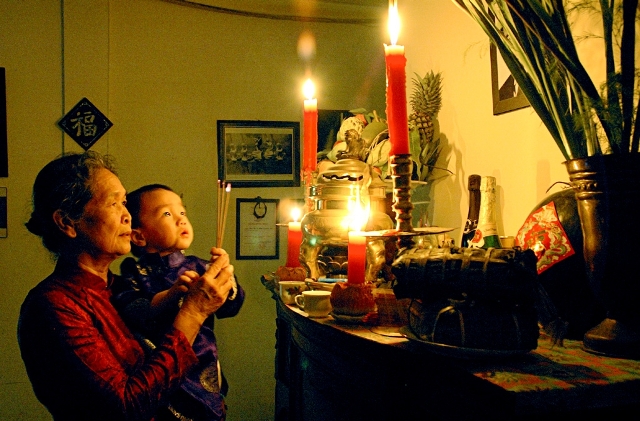
Worship ancestors
- Vietnamese employees are quite punctual, especially in business meetings. However, a tolerance of about 5 minutes late is also normally acceptable in Vietnamese working culture.
- Vietnamese employees usually take meetings at work seriously and look very tense (not relaxed) in the meetings.
- Gender discrimination is usually not popular in the workplace. However, it is a fact that there are far fewer female workers than male workers in the software industry and this has nothing to do with gender discrimination.
- Compared to Western culture, Vietnamese have a much higher level of tolerance of sexual harassment. This means a lot of behaviors that are considered as sexual harassment in Western cultures may not be seen as such in Vietnam. Generally speaking, it is quite common for Vietnamese to think that sexual harassment needs to involve physical contact. An induction or orientation may need to be conducted to align the understanding of Vietnamese employees in this topic.
- Vietnamese employees usually need to build personal trust with others outside of the office in order to increase their teamwork and collaboration. This is the reason why companies in Vietnam usually have a budget for team members having dinner or drinking every few months or sponsor some sport activities for team members to play together. In business, a contract is more likely to be signed by inviting the business partner to dinner, drinking and other entertainment activities.
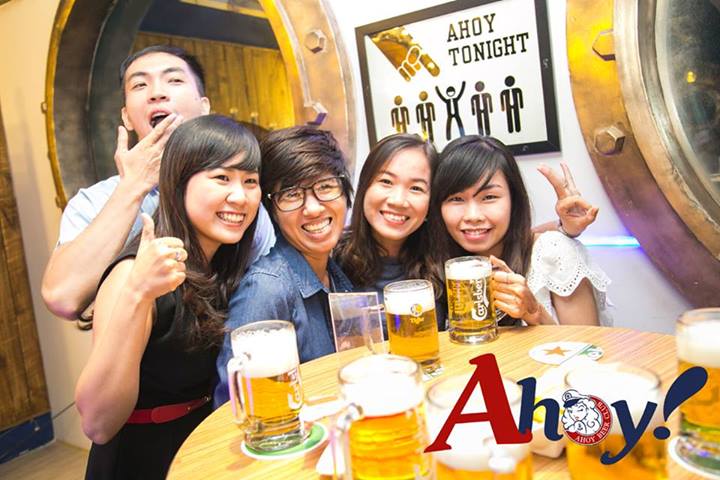
Drinking after working hours
- Influenced by the hierarchical structure in Confucianism, it is quite common that most Vietnamese employees think that they have the obligation to respect people who have a higher position or are older than them.
- Vietnamese people are usually hospitable. It is quite common that as a guest, you will be treated to lunch or dinner by a Vietnamese host. However, Vietnamese people also expect the same in return when they are the guests.
- Good topics for conversation are sports, travel, food, music, movies and weather. Soccer is the most popular sport in Vietnam and Vietnamese people call it “football”. Avoid political topics, especially Vietnamese politics.
- A smile does not always mean “happy”. A smile can also mean:
- “Hi”
- I’m trying to look friendly
- I’m feeling embarrassed
- I’m sorry that I did something wrong
- Handshake: Not all Vietnamese employees know how to shake hands properly because they may not have been taught that. Therefore, a loose handshake doesn’t mean that the person is not confident or impolite, it may simply mean that he/she does not know how to shake hands properly. Females (especially foreigners) usually need to initialize a handshake with Vietnamese males. Males usually have a looser and quicker handshake with females than with other males.
- Vietnamese developers usually don’t have good socializing skills.
- Vietnamese names are written in this order: surname followed by middle name and then given name. People are called by their given name, even with the prefix Mr. or Ms. Common surnames in Vietnam are:
- Nguyen: 40% of the Vietnamese population (FYI, Nguyen is also the 13th most popular surname in Australia and growing fast, especially in Sydney and Melbourne)
- Tran: 10% of the Vietnamese population
- Le: 10% of the Vietnamese population
- Sometimes, Vietnamese can start their answer with “Yes” or “OK” but they may not actually mean yes or ok. It just means that they understand what you say or what you ask. The actual answer is after the “Yes” or “OK”. For example: – “What do you think about solution A?” – “Yes. I think that solution A is good but solution B is actually better.”
- English speakers should avoid tag question because the answer from a Vietnamese can be confusing due to the different language structure. For example: – “Solution A isn’t good enough, is it?” – “Yes”. The answer “Yes” here means “I agree with you that solution A isn’t good enough”.
We should ask this question instead: “Do you agree that solution A isn’t good enough?” - If a group of Vietnamese is silent after being asked for their opinion about something, it can be interpreted in two ways:
- The group agrees (or at least has no objection) to what is proposed. This is the more likely case.
- The group is surprised or shocked by what is proposed. This is a less likely case.
The following entertainment activities are quite common in Vietnam and as a guest, you can be invited to them:
- Eating out and drinking
- Karaoke
- Bowling
- Hanging out at a coffee shop
- Hanging out at bar and pub
- Massage (Even though it is illegal in Vietnam, some massage services also include sexual services, so it is better to check with the host when you are invited to a massage).
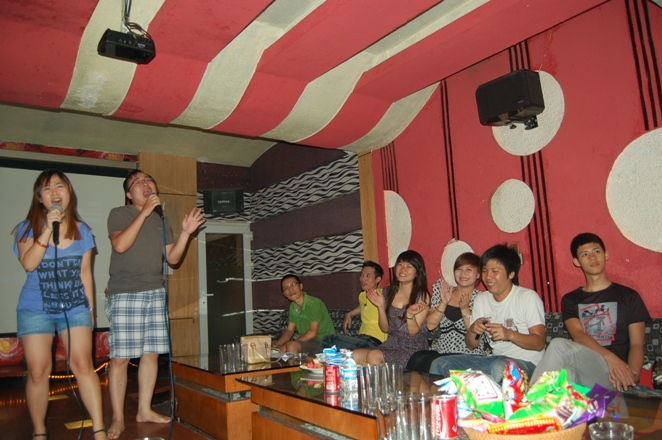
Karaoke in Vietnam
Generally speaking, Vietnamese people dress more casually than Western people. This may be because of the hot weather in Vietnam, especially in the South.
- Suit and tie are not very common. People only wear a suit and tie in very important business meetings (such as when signing a contract). The following picture shows what can be considered as “formal dress” for a common Vietnamese employee:
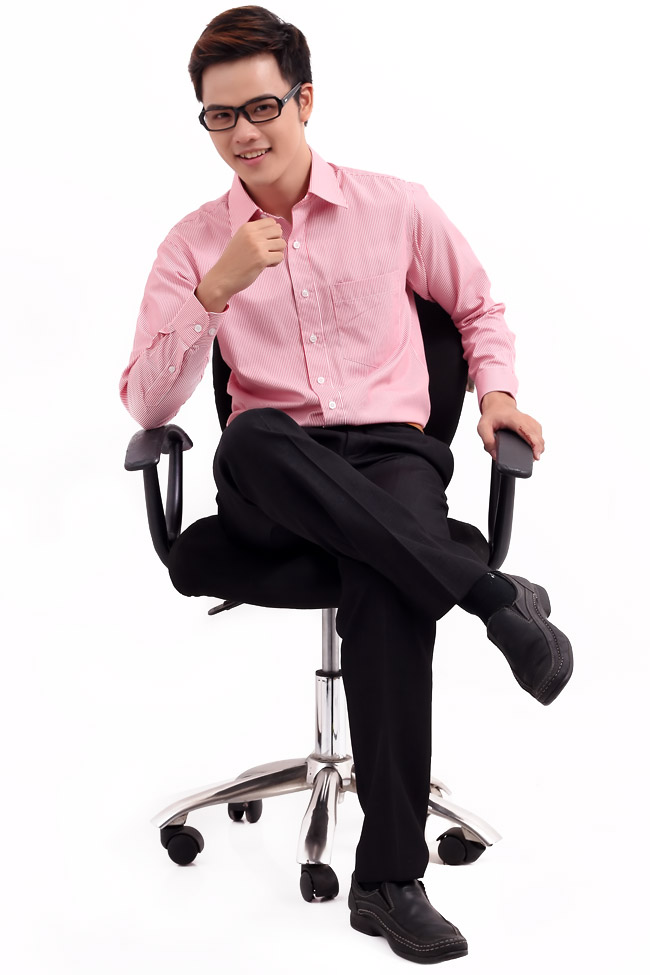
Formal dress at workplace in Vietnam
- This is considered formal enough for job interview or wedding party. Usually at a wedding party, only the groom wears a suit and tie.
- Dressing in the North is usually more formal than in the South, mainly because of the difference in culture and climate. Suit and tie are more popular in the North of Vietnam.
- Developers usually dress more casually. Most of the developers in Ho Chi Minh City wear jeans and T-shirts in the office. Sandals and flip-flops are also acceptable. Some companies even accept wearing shorts in the office. The following picture shows typical dress in a software company in Ho Chi Minh City:
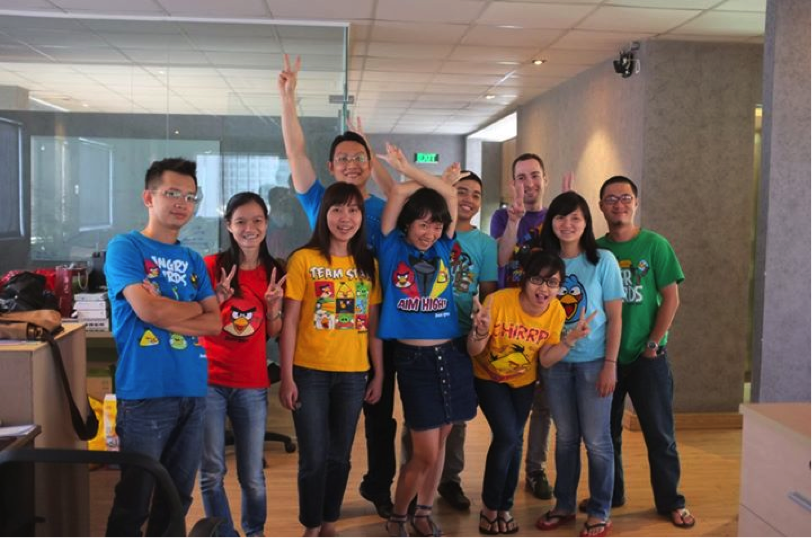
Dressing in IT company
- According Vietnamese labor laws, employees must have at least 12 days of annual leave. Some companies can have up to 20 days of annual leave per year for the employees.
- Vietnamese employees usually don’t save all of their annual leave for a long vacation. Instead, they usually take several short vacations during the year.
- Vietnam has 10 days of public holiday and Tet (or Lunar New Year) is the biggest public holiday (like Christmas in Western culture). Even though the Tet official holiday is only 5 days, people usually take some extra days off using their annual leave during this time.
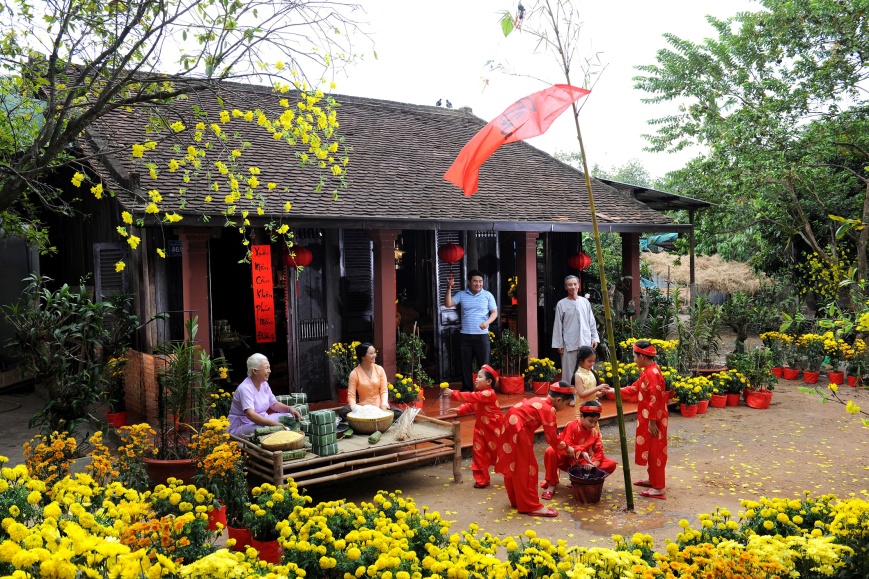
Tet, the biggest public holiday in Vietnam